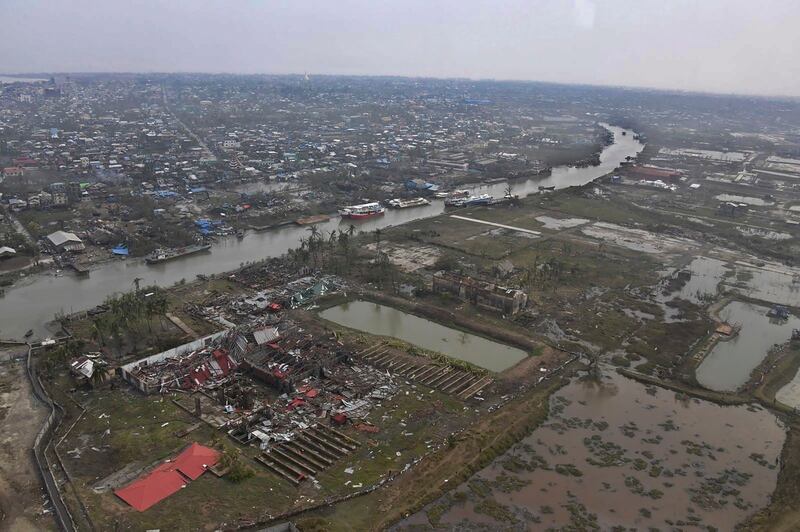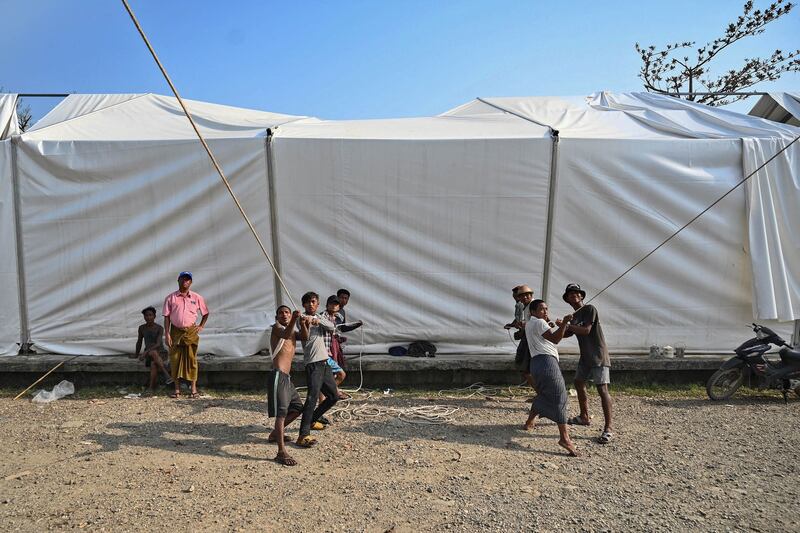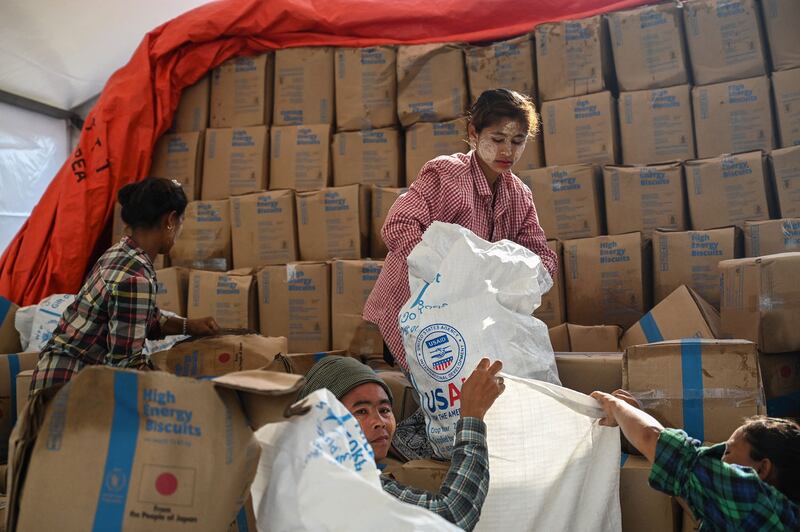Myanmar’s junta has issued a blanket ban on transportation for aid groups operating in Rakhine state only a day after granting them permission to assist victims of one of the worst cyclones to hit the country in a decade.
The Central Committee for the Rakhine state government on Wednesday approved transportation access to domestic and international aid groups assisting in the aftermath of Cyclone Mocha, which made landfall on May 14 with sustained winds reaching over 220 kilometers per hour (137 mph), killing more than 400 people and decimating much of the state.
On Thursday, Rakhine State Minister of Security and Border Affairs Colonel Kyaw Thura issued a letter saying that the junta had suspended the order. No explanation was provided.
Aid workers have told RFA that In northern Rakhine, more than 90% of houses and buildings were damaged by the storm, but more than two weeks later, many people have yet to receive aid. The situation prompted several Rakhine humanitarian organizations to issue a joint statement last week urging junta authorities to speed up relief efforts and not to restrict the work of civil society groups.

An official with an international aid group, who declined to be named for security reasons, told RFA that the flip-flop had delayed urgently needed supplies from reaching at-risk populations.
“Aid groups such as the U.N., INGOs [international NGOs] and NGOs had applied for access to help the cyclone victims and the state government approved it yesterday, but the junta overrode it,” he said. “I’ve heard that the ban was imposed by the union-level junta in Naypyidaw.”
A domestic NGO official, who also spoke on condition of anonymity, called the junta’s rescinding of access to cyclone victims “unacceptable.”
“People are starving and some have to live out in the open without a roof or walls,” he said. “The military’s ban of international humanitarian assistance at such a critical moment when the victims are facing various hardships proves that we are living under an inhumane government.”

The official noted that with the disaster so recent, it is too early to focus on rebuilding Rakhine state.
“It’s still an emergency situation when urgent help and rescue are of vital importance,” he said, calling for an immediate lift to the ban.
‘Not a political issue’
Pe Than, an ethnic Rakhine politician and former lawmaker in Naypyidaw’s Lower House, went further, saying the junta’s ban is the same as inflicting harm on cyclone victims.
"At a time when we are in need of a lot of domestic and foreign aid … I can't understand [the junta] closing off access like this,” he said. “This issue is not a political one, nor is it related to the military. It is humanitarian, which is simply a matter of welcoming those who will help. I was shocked to see that what is happening is the reverse.”

Attempts by RFA to contact Hla Thein, the junta’s spokesman and attorney general for Rakhine state, by telephone regarding the ban rang unanswered Thursday.
The junta announced on May 21 that a total of 148 Rakhine and Rohingya people died in Sittwe, Rathedaung, Ponnagyun and Myebon townships due to Cyclone Mocha.
Emergency assistance is needed in cyclone-affected townships of Sittwe, Rathedaung, Kyauktaw, Ponnagyun, Pauktaw, Myebon and Mrauk-U, where many residential homes have been damaged and food and drinking water are in short supply.
Translated by Myo Min Aung. Edited by Joshua Lipes and Malcolm Foster.
